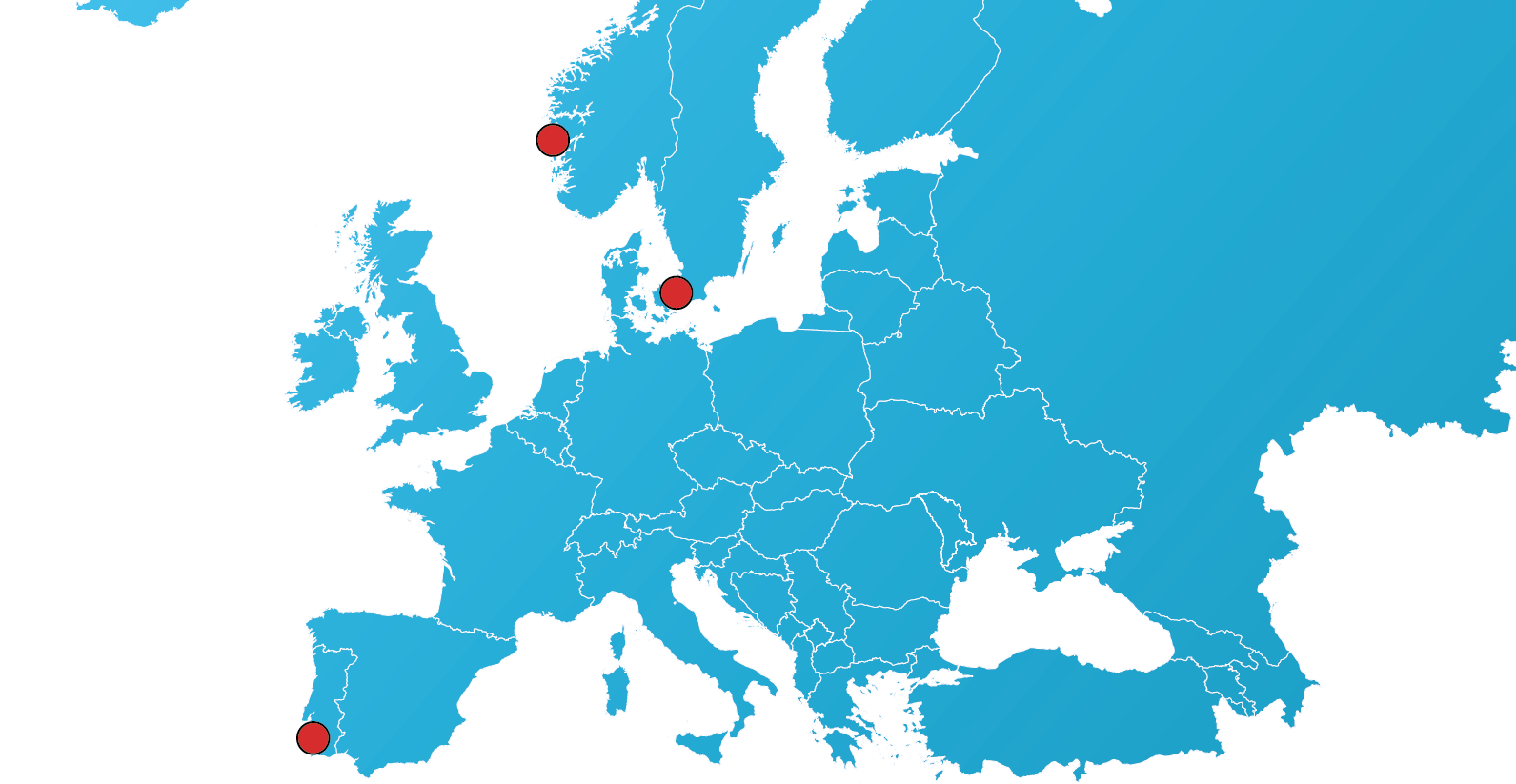22 partners from 8 different countries will be working together. NORCE - Norwegian Research Centre will coordinate the work. There will be three pilots, one in Bergen Norway, one in Høje-Taastrup and the area of Greater Copenhagen Denmark - and one in Sines in Portugal.
ELEXIA contributes to establish concrete pathways to achieve independence of fossil fuels by harnessing the latent flexibility of the energy system through integration across sectors, data-intelligence, and planning, towards 2050 European goals.
The main aim of ELEXIA is:
- To develop/upgrade planning and operational tools for planning and managing integrated energy systems.
- To demonstrate the use of planning and operational tools in a one-stop-shop, modular and open, digital platform at TRL7–8 (demonstration in operational environment).
- To demonstrate the benefits of sector integration in three different geographical, climate and economic conditions in Europe: in an industrial port environment in Portugal, in an urban-city hub environment in Denmark, and in an industrial-urban-residential environment in Norway.
The impact of ELEXIA
Expected outcomes by 2028:
- 18 000 citizens engaged.
- A growth in national and international research and innovation networks.
- Provision of knowledge and services through to stakeholder groups (local operators, IT experts, energy infrastructures, municipalities, ports, Etc.) in at least 6 countries.
- 1.35TWh/y energy managed by the end of ELEXIA and 10 TWh/y managed by 2028.
- Governance/policy recommendations delivered to key policy makers, including European Parliament.
- Contribution to the Common European Energy Data Space.
Expected impacts by 2030:
- SCIENTIFIC: Over 60 publications, Capacity building for over 50 000 individuals, jobs in R&D, Contribution to EC goals on open science through open-source solutions.
- SOCIETAL: 45-55% emissions reduction with >87M€/y in energy and CO2 tax savings, 20-25% energy efficiency improvement; +40% demand reduction from the grid; Contribution to SDGs; Lowering costs contributing to reducing energy poverty; +15% renewable cost reduction towards climate neutrality in 2050; 1M citizens engaged.
- ECONOMIC / TECHNOLOGICAL: Total savings of over 87 M€; Energy cost reductions, access to flexibility services, sector coupling will contribute to revenue increase by over 112M€; Job creation; 61 replication cases with 50+ TWh/y energy managed.
Expected impacts BEYOND 2030:
- Potential roll out to 356 municipalities in Norway, 243 cities in Denmark, 158 cities in Portugal. Potential replication in more than 300 ports.
- High potential of replication of components of ELEXIA (E.g. To school buildings reducing 25-40% CO2 emissions; or E.g. to office buildings and residential houses (saving heating costs and enhancing occupants’ well-being and performance).
- Accelerating transition towards a CO2 neutrality.
- Increased resource efficiency by 15%-20% for existing infrastructure and 50% for new installed systems.
ELEXIA (Demonstration of a digitized energy system integration across sectors enhancing flexibility and resilience towards efficient, sustainable, cost-optimised, affordable, secure and stable energy supply) is anchored under the EU Green Deal & the EU Strategy for Energy System Integration. It is in line with the Paris Agreement and with the UN’s 2030 Agenda for Sustainable Development.
